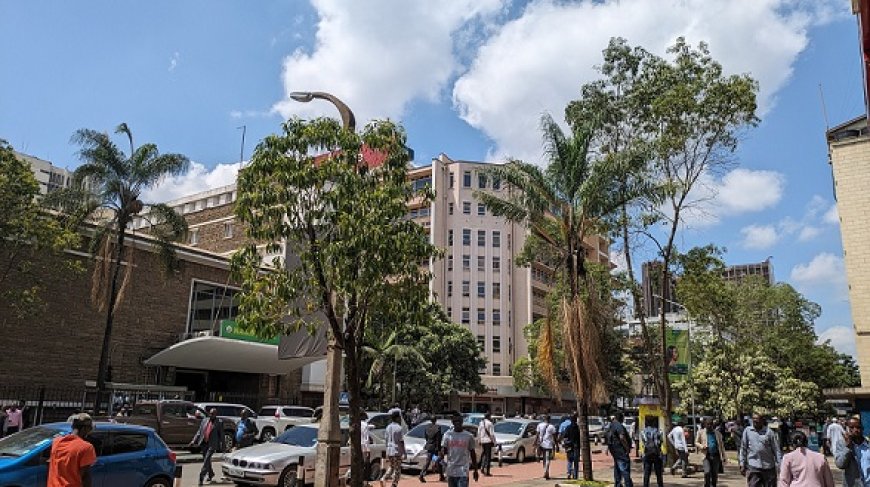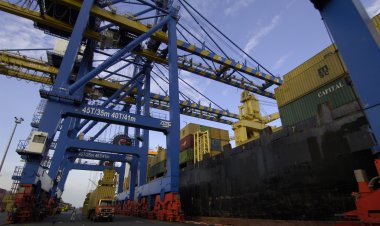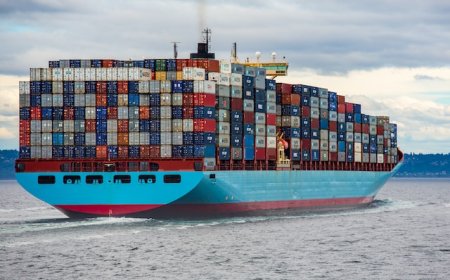The negotiations surrounding the African Continental Free Trade Area agreement have been progressing, and the Protocol on Investment has already been adopted. At the World Trade Organization, the Investment Facilitation for Development agreement has also been adopted. Both agreements seek to facilitate sustainable investment into developing economies and there might be ways for them to work together. In this interview, APRI discusses issues around these two instruments while exploring and proposing measures for increased synergy in their implementation.
The interview was conducted by Teniola Tayo, Trade Policy Fellow at APRI. The transcript has been shortened and the responses have been slightly edited for clarity.
Introduction
Teniola Tayo
My name is Teniola Tayo. I am currently the Trade Policy Fellow with the Africa Policy Research Institute. Today we are having an expert interview with Axel Berger, Deputy Director of the German Institute of Development and Sustainability. Axel, we first ran into each other at the last WTO Public Forum in Geneva. It's great to have you here virtually to talk about the WTO's Investment Facilitation for Development agreement, the IFD. Could you introduce yourself and tell us about something exciting that you’re working on at the moment?
Axel Berger
Well, thank you very much for reaching out. It was indeed great to meet you at the forum in Geneva. As you’ve mentioned, I'm Deputy Director of the German Institute of Development and Sustainability, which is a think tank and research institute based in Bonn, Germany. We work on various issues related to development, global development, and developing countries. What excites me at the moment is observing the ongoing discussions at the WTO concerning the reform of the WTO and the role of plurilateral agreements (alliances of the willing or coalitions of the willing, if you like) in pushing forward this reform.
The Investment Facilitation for Development Agreement
Teniola Tayo
These are exciting times! The world is changing very quickly, so I'm glad that some of these major multilateral institutions are looking to keep up with what's happening in the world. We're going to dive right into it. Can you tell us what the WTO’s Investment Facilitation for Development (IFD) agreement is? What are its aims and current status? And why we should care about it.
Axel Berger
Well, the IFD agreement discussions are one of the plurilateral tracks I've just mentioned. They involve a subset of WTO members that came together to discuss and later negotiate on a particular issue. We have plurilaterals on investment facilitation, which we will discuss today. But then there are also plurilateral negotiations on E-commerce, service domestic regulations, and small and medium sized enterprises. What's special about the IFD negotiations is that they aren’t being driven by developed countries (the OECD countries). They are actually being pushed forward by non-OECD countries, that is, developing countries or the large emerging economies, whatever you'd like to call them; some call them countries from the Global South. That's special because typically these kinds of plurilateral negotiations are put forward by OECD countries. Instead, here we have a group of countries who have come together as a group: the Friends of Investment Facilitation for Development (FIFD). They are all from the Global South, and use the WTO to further their interest in a particular area. Some have an interest in attracting Foreign Direct Investment (FDI), while others (the Brazils, the Chinas) also like to use these negotiations to promote their outgoing FDI.
And what is the agreement about? Well, let's start with what it's not about. It's not about the typical issues you find in bilateral investment treaties, investment charters, or free trade agreements. Neither is it about market access for foreign investors, legal protection of foreign investors, nor investor state dispute settlement, which has come under severe criticism over the last one or two decades.
Rather, the Investment Facilitation for Development negotiations, and the agreement, which was concluded (in principle), just in July, aim at improving domestic investment frameworks by making them more transparent, predictable, and efficient. They’ll do this by setting up domestic-level institutions which will act like single windows for investors. For example, there could be an institution for handing in the documents you need in order to register your investment, with focal points that provide practical information to foreign investors. The IFD agreement also aims to establish a committee at the WTO level to support mutual learning of best practices, sharing of knowledge, and international cooperation on investment matters.
What is also very exciting about the IFD agreement is its strong development focus. The idea is to help developing countries, especially the least developed countries in implementing and benefitting from the agreement. To do this, it adopts the needs-assessment mechanism from the Trade Facilitation Agreement, where you basically conduct domestic-level workshops with the countries so that they can understand their gaps, when they would like to implement the agreement, what kind of provisions they already cover and which institutions they already have, and where they still have to invest in order to set up institutions, reform laws, regulations, etc. On the basis of these needs assessments, donors come in and help less developed countries (LDCs) and developing countries with technical assistance and capacity building. This is a very important element of the IFD integrations: it's not just about having an international agreement, it’s even more important to be able to implement it domestically.
Teniola Tayo
Thank you. So from what I’m hearing, the IFD is a very practical instrument. One of its main objectives is to drive, encourage, and support domestic reform. Internal reform in these countries will make it easier for investors to set up shop and link to the surveys that have been done with foreign investors, asking, for example, why they chose to locate (or not) in this country in this economy. I think it's a vital instrument. What is the current status of the agreement? You said it has been agreed? Does that mean it has been implemented already?
Axel Berger
No, it hasn’t been implemented yet. A text has been officially agreed, in principle, by more than 110 WTO members (so two thirds of the WTO membership). We are now in the phase of legal scrubbing and revising the text in the margins. However, the substance is there; we know what it will look like. Now, the members, or the participants, of the IFD negotiations, face two challenges. The first one is conducting outreach and convincing more countries, in particular developing countries and LDCs – especially from Africa – to join the agreement, become a member and participate in the process. This is crucial when it comes to the needs-assessment process that I've just mentioned, which is a tool to support domestic reforms.
The second challenge is to integrate the agreement into the WTO. Since the agreement is plurilateral, its integration is a highly political process; it’s also complicated, because it needs consensus. The challenge is intensified by the fact that certain WTO members (one may mention India and South Africa in particular) are very much opposed to using plurilaterals before being able to work on the remaining issues of the Doha development round. Furthermore, you need the agreement from those countries who are not participating in the negotiations. This hardly seems like an issue since investment facilitation is about domestic reforms – the agreement works on the basis of Most Favoured Nation (MFN). That means other parties or WTO members which are not party to the agreement will also benefit to some extent. Indeed our impact assessments show that outsiders will benefit from some spillover effects, though obviously not to the extent that the members will.
So that's where we stand: We have the shape of the agreement. The next steps are outreach and integration into the WTO legal architecture.
Teniola Tayo
Okay, so still some work to be done. But I guess things are moving along very speedily. Now, there's something I wanted to ask you. While reading about this agreement, I found that it has a particular focus on sustainable investment. I think this is a reflection of the broader, global trend towards sustainability, renewable energy investments, energy transition, and recognising the climate crisis. Can you comment a bit on this focus on sustainability? And what does it mean for the agreement, especially when it's been implemented?
Axel Berger
Well, on the one hand, the agreement facilitates all investments, not only those in sectors and areas which are particularly important with regard to sustainability or the green economy – that's more an issue of investment promotion; that is, having a domestic-level Investment Promotion Agency, which tries to attract certain kinds of investors, work on certain ESG criteria, or channel them to certain sectors.
Rather, what's special about the IFD agreement is that it's the first WTO agreement which has a whole chapter on sustainable development. It’s not just about channelling certain types of investments that are relevant for sustainable development. It incorporates rules on anti-corruption and international conventions on labour (so a number of ILO conventions). And as I said, it's also key that the agreement has a development dimension so that it tries to promote LDCs and developing countries so they can implement the agreement and benefit economically from it.
Teniola Tayo
I like what you’re saying! When a lot of people hear the word sustainability, they only think about the environment side of things. But social sustainability is a key aspect, and it's linked to the concept of investment facilitation for development. It goes back to the question of governance, and then of course of social issues; jobs, employment creation, and what that really means. I think it's important because a trend seems to be that some investment, a lot of FDI, now is not as coupled with employment creation as it used to be. There are real implications for LDCs that are still struggling to solve some of these social issues through attracting capital into their economies. Thank you so much for that insight, Axel.
On the African Continental Free Trade Area (AfCFTA) Agreement
Teniola Tayo
From what you've said, it sounds like the IFD agreement is focused on less developed countries (LDCs). We know that a number of these are in Africa. One of the major current projects that is very much talked about is the African Continental Free Trade Area agreement (AfCFTA). Its commencement was announced in January 2021. Negotiations are still ongoing, though they are moving along speedily. In fact, an interim trading arrangement - the Guided Trade Initiative – was launched by eight countries last year. This will hopefully be expanded this year to include more countries.
To return to the points you have been making, one of the protocols of the AfCFTA that has been adopted is that on investment. I think that there might be some synergies here. The AfCFTA’s investment protocol is very expansive. It really seeks to improve the regulatory environment for investments in a similar way to what you've described. However, it also has a mandate for promoting, facilitating, and protecting investment. So some of the things that the IFD doesn't cover, the AfCFTA does.
The AfCFTA investment protocol has been adopted, but, like the IFD, it's still being scrubbed. It then has to be ratified by state parties for it to become operational. Bearing in mind the similarities between the IFD’s and the AfCFTA’s objectives, I think it will make a lot of sense if the two instruments work together. For example, there'll be some resources that will support the implementation of the WTO’s IFD, and other resources that will support the implementation of the AfCFTA’s investment protocol. To bridge this divide, the IFD provides for the creation of a new agency, called the Pan African Trade and Investments Agency. This will have a mandate for doing a lot of these things that you're describing, while working alongside all of the different national Investment Promotion Agencies (IPAs) in Africa.
Not to put you on the spot, Axel, but from your point of view do you see any opportunities for collaboration between the WTO’s and the AfCFTA's instruments? After all, their target economies coincide and intersect to a significant degree.
How the AfCFTA and WTO Can Work Together
Axel Berger
Well, both tracks and negotiation arenas, so to speak, are highly interesting. On the one hand, the IFD agreement is pursuing a highly innovative approach. Meanwhile, the AfCFTA process is potentially the most important negotiation track for African economies and African countries. Where these two arenas interact is, I think, first of all in strengthening the domestic-level capacities; that is in implementing reforms and international agreements. And as you said, to some extent there are also some investment facilitation provisions and elements in the AfCFTA agreement. Obviously, it goes beyond just investment facilitation, but that's one element that can be strengthened. As this overlaps with the IFD agreement’s aims, I think that there's an interesting case here for mutual learning. It would therefore be interesting to establish policy dialogues between the WTO members, the committee, and the institutional arrangements on the AfCFTA side.
These are the key overlaps and the key elements where I see that there are synergies which can be harnessed to promote both agreements. Obviously, if you think about technical assistance or capacity-building activities for both the AfCFTA and IFD agreements, it only makes sense to combine them to a certain extent because when international agreements interact, certain trade-offs accompany the benefits. And it also only makes sense to look at the whole international legal framework a country is confronted with or is party to – you may also have to take into consideration bilateral investment treaties, for example – and to understand how these elements, these international agreements, interact at the domestic level, and how a national government can best make use of these agreements in order to attract the right kind of FDI.
Teniola Tayo
I absolutely agree. So Axel, you've listed a number of the potential synergies between these two agreements. In the case of policy dialogues, which relates to knowledge sharing and exchange, this is really important, because the AfCFTA’s investment protocol is largely focused on intra-African investment, although there is some expansion of the mandate to include foreign investment. The idea is that all of the reforms that ought to take place as a result of the protocol will affect both intra-African and foreign investment into Africa. I see the IFD almost as a continuation of this: The AfCFTA’s protocol is focused on intra-African investors, while the IFD is about global investors going into LDCs and other developing countries. Together, they constitute an expansion of the mandate.
I’d like to reflect back on the idea of bringing the frameworks, guidelines, and best practices for investment-facilitation on board for the AfCFTA investment protocols process. You mentioned, for example, a single window investors can use for submitting documents and accessing guidelines for the AfCFTA's process as they work with national IPs or national investment promotion agencies to ease the facilitation of investments into their economies. What do you think that may look like operationally? You mentioned the Friends of Investment Facilitation for Development (the FIFD) and that it comprises non-OECD countries – presumably a number of them are AfCFTA state parties. Would it be worthwhile having an initial policy dialogue, so these countries can discuss both instruments, highlight areas of intersection, and then plan their collaboration and mutual development?
Axel Berger
I think there's still space to promote such dialogues. The potential is there, but it has not yet been tapped. However, there may be a couple of countries which are in a good position to push something like that forward. I'm thinking of West African countries like Nigeria, which was also instrumental in promoting the investments facilitation agenda. These countries are also typically more favourable with regard to the IFD agreement negotiations. Of course, West Africa currently also has other challenges, but those are apart from the economic or trade investment area. Regardless, the West African countries are best poised to push forward such a collaborative approach, especially when we remember that there are other countries across the African continent which are very much opposed to IFD.
I think it's a process of better understanding of what the IFD agreement is about, and what it is not about. Countries also need to grasp what kind of effects it can have, and what kind of domestic reforms they would need to undertake in order to implement and benefit from the IFD agreement. In that process, I'm sure many countries or policymakers may learn that, while implementing the IFD agreement, they can also benefit from these domestic reforms vis-a-vis the AfCFTA process. If countries take these two processes together, they can come up with a streamlined, predictable, efficient, and well-structured domestic investment framework that maximises synergies. It would also avoid duplications of processes, which are a serious obstacle to policy making and attracting foreign investors.
Challenges Facing the IFD in Africa
Teniola Tayo
Thank you for that, Axel. We're wrapping up the interview, but I'd just like to hear a little bit more about the countries that oppose the IFD. Is the main reason because they think it's a coordinating instrument, and they don't want to be coordinated by the WTO, or they don't want measures to be imposed on them by the WTO?
Axel Berger
I think it's a mix of criticism. On the one side, you have this very fundamental or principle-based hesitancy to use plurilateral approaches in order to negotiate WTO rules. That's beyond investment or ecommerce or whatever; it's just the arrangement of a small group of countries going forward. And then obviously, there's also a fear that an IFD agreement may reduce policy space to promote domestic reforms, workforce reforms, or even economic or ecological reforms.
To these concerns, I would respond: Please take a look at the text (which is not published officially, you have to admit, but there are leaks) so you can get a sense of what this agreement is actually about. You will find very soft language. Only regarding a couple of provisions do you really have binding language. It's basically about countries making use of this agreement very flexibly, so I wouldn't be too concerned about policy space issues.
And then there are some critics who will just say, "Okay, right now we are negotiating an investment facilitation agreement, but that may be the first step in order to negotiate a multilateral investment protection or investment liberalisation agreement". I mean, I understand that this was the fear 20 years ago, when, in Cancun, WTO members negotiated the so-called Singapore issues, among which were investment concerns. A number of countries walked out of the negotiation room. But we should not forget that those countries are more or less the same countries which are negotiating the IFD agreement today (for example, China, Brazil, etc). These countries are explicit that this agreement is not about protection, liberalisation or Investor State Dispute Settlement (ISDS). I think that's a very credible position, so, to those concerned: I wouldn't be too worried about such an expansive negotiation agenda.
The problems are really practical. How can we use an international agreement at the domestic level in LDCs? How can we improve domestic frameworks for foreign, African, and domestic investors alike? How can we improve these issues? I guess that's an agenda which a country should worry about anyway. As a solution, here is international agreement, a blueprint if you will, which constitutes a basis for mutual learning and attracting additional technical assistance for capacity building. I would hope that with such an informed discussion, more countries would join the agreement and make the best use of the support being offered.
Concluding Remarks on Multilateralism
Teniola Tayo
Thank you very much for that Axel. In lieu of final remarks, what would you say you’re optimistic about as far as the investment landscape for developing and less developed countries goes? We know there have been a lot of talks about global fragmentation and even about friend-shoring, near-shoring, and of course the trade and investment wars between some geopolitical powers. There are concerns. But what are you optimistic about for the future?
Axel Berger
I think what I’m optimistic about is that multilateralism still seems to work. We have talked about the IFD agreement in the WTO sphere, but if I look to other areas of multilateralism, like the governance of our oceans or the recent frame for biodiversity, you’ll see that there’s still interest in multilateralism. I think that’s very encouraging, so I wouldn’t be too worried about the discussion of global fragmentation.
Of course, we live in an era of geopolitical and geo-economic competition, where there are a lot of issues related to trust (in particular between the global north and the global south, if you like to use those terms). Nevertheless, I still think if you look at the practical level, when it comes to foreign investors and domestic-level economic policy making, this discussion about decoupling, de-risking, friend-shoring, near-shoring, and whatever terms you would use, is not felt that strongly. Certainly, we have to take these discourses seriously, but I also see enough tendencies and processes where countries and actors are willing to move forward with cooperative agendas. I think that’s perhaps a way to end our discussion on a positive note.
Teniola Tayo
Indeed! Axel, thank you so much for this interview. To our listeners and readers, this has been an Africa Policy Research Institute Expert interview with Axel Berger of IDOS. Axel, I hope you enjoy the rest of your day, and once again, thank you.
Axel Berger
Thank you so much Teniola, not only for the conversation but also for the chance to learn from you about the AfCFTA process. It was a pleasure, thank you.
About the Expert
Axel Berger
Dr. Axel Berger is the interim Deputy Director at the German Development Institute / Deutsches Institut für Entwicklungspolitik (DIE), Programme Transformation of Economic and Social Systems. He is a member of the G20 Trade and Investment Research Network (TIRN), a cross-country, independent network of trade and investment policy researchers. Axel holds a doctorate in political science from the University of Duisburg-Essen and a Master’s degree from the Munich Ludwig-Maximilians-University in political science, economics and modern history.




